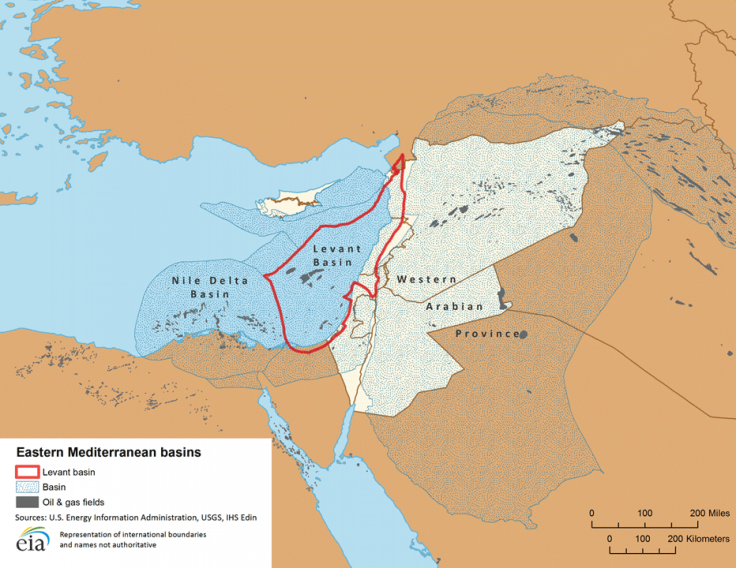Israel, Lebanon And The Eastern Mediterranean's Oil And Gas, A Source Of Conflict Or Peace?

The Eastern Mediterranean Sea may heat up in the near future as Lebanon looks to award offshore oil and gas exploration licenses within what Israel argues is its exclusive economic zone, or EEZ, Israeli officials say.
Israel and Lebanon have been at odds over their maritime borders for decades, and recent discoveries off Israel’s coast in what’s called the Levant Basin could create more conflict between the wary neighbors, Israeli news service the Globes reported last week.

Recent energy finds in the region have some countries, including Cyprus, Israel and Lebanon, scrambling to develop the reserves.
Israel considers the waters where the reserves are located to be part of its economic exclusion zone, or EEZ, and in the past it has balked at awarding oil and gas exploration licenses in the area. Israel has not yet responded to Lebanon’s plans, but in the past it has vowed to use military force to protect the zone.
Acting as a mediator, the U.S. has been trying to find a solution to the dispute but to date has been unsuccessful.
In December 2012 the U.S. drafted proposed maps based on versions submitted by both Lebanon and Israel that delineate the maritime economic borders where each country can claim the right to explore for natural gas. To date, no agreements have been made. Recently, Israeli Prime Minister Benjamin Netanyahu met with President Barack Obama at the White House; reportedly, the Israeli-Lebanese maritime conflict was a key point of discussion.
The U.S. push to find a solution to the Israel-Lebanon maritime dispute is part of a broader policy aimed at bringing stability to the region.
Cyprus wants to become a regional energy hub with a proposed liquid natural gas, or LNG, export facility it wants to build, but it may face hurdles stemming from disputes over its maritime rights and its past degrees of adherance to maritime boundaries, according to a German Marshal Fund publication. Turkey does not recognize Cyprus and the various maritime agreements it has made with Lebanon, Israel and Egypt.
Turkey does not recognize the Greek-Cypriot-controlled Republic of Cyprus and therefore says Cyprus has no EEZ rights beyond its 12-nautical-mile territorial limit, but no country other than Turkey recognizes the Turkish-Cypriot-controlled Turkish Republic of Northern Cyprus (TRNC).
Turkey-Cypriot authorities have allowed the state-owned Turkish National Oil Company to explore for offshore natural gas in at least two blocks, or areas, where there are reported natural gas deposits that Cyprus says are within its EEZ.
“The discoveries of hydrocarbons in the eastern Mediterranean are definitely now an incentive, and it could be a catalyst for peace for the region,” Yiorgos Lakkotrypis, Cyprus’ energy minister told International Business Times. “[Israel, Lebanon, Egypt and Cyprus] recognize that if you develop a stable environment where you can attract foreign direct investment ... These can be a new prospect for bringing both wealth and economic development to each of the countries, but [they] also can … create a new geopolitical map.”
Correction: An earlier version of this story included a statement about the division of Cyprus into separate Greek and Turkish entities that should have been attributed to a German Marshall Fund publication.
© Copyright IBTimes 2024. All rights reserved.












